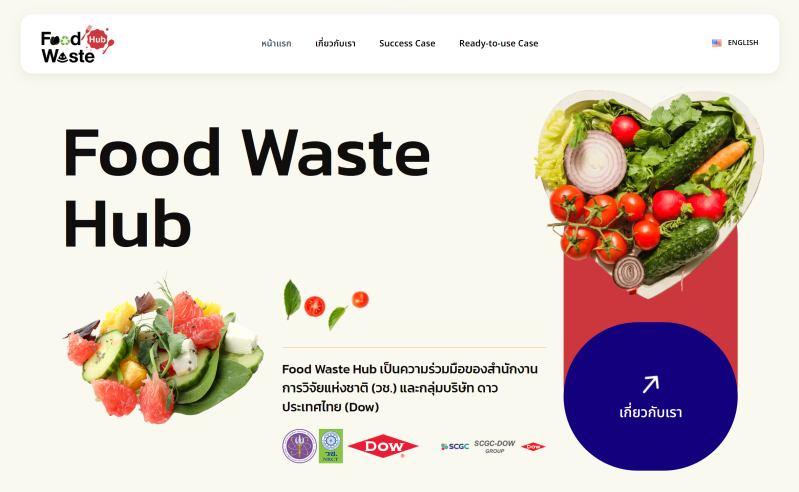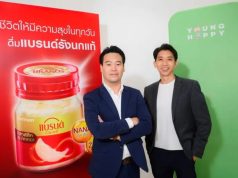Wednesday 07 February 2024 – Addressing the global issue of food waste, the National Research Council of Thailand (NRCT) under the Ministry of Higher Education, Science, Research, and Innovation, with support from Dow Thailand, has launched www.FoodWasteHub.com. This website showcases Thai researchers’ innovations to optimize food waste management, particularly catering to Small and Medium Enterprises (SMEs) and startups seeking commercially viable applications. The platform aims to reduce food waste, separate organic waste from recyclables, and support Thailand’s Bio-Circular-Green (BCG) policy.
Globally, one-third of all food produced goes to waste[ Information from the Food and Agriculture Organization of the United Nations (FAO)], posing significant health and environmental challenges. Thailand is no exception, with food waste constituting 64% of the total waste generated[ foodwaste – TDRI: Thailand Development Research Institute]. This alarming statistic highlights the need for effective solutions as very little food waste is being utilized. The lack of effective sorting before disposal results in organic matter contaminating other waste streams, preventing recyclable materials like plastic from being properly recycled.
Recognizing the importance of waste management, NRCT and Dow have collaborated to promote waste separation through innovation. The recent partnership includes the launch of www.FoodWasteHub.com, which encourages waste management based on the circular economy concept. This initiative intends to reduce food waste by utilizing food scraps before decomposition, minimizing contamination with recyclable materials, and consequently decreasing overall waste and increasing recycling rates.
The development of the website not only presents an online platform for disseminating information on research funded by NRCT or project prototypes but also offers a new avenue for those interested in establishing businesses and incorporating research into commercial applications.
During the press conference unveiling www.FoodWasteHub.com at the True Digital Park, demonstrations of food waste management innovations were presented to the media, SMEs, startups, and interested individuals. This allowed them to witness a portion of the research on the website. Additionally, all participating researchers received certificates of appreciation for contributing to the public benefit by allowing the publication of their works.
Dr. Wiparat Dee-ong, Executive Director of NRCT, emphasized the significance of the Food Waste Hub, stating, “This project is a good example of applying scientific and technological innovations in daily life. We hope the Food Waste Hub will be a starting point for transforming waste management in Thailand. We are delighted to collaborate with Dow in developing the website as a source of information and ideas to promote the beneficial use of food waste in Thailand and foster innovations that benefit everyone.”
In addition to the website launch, Dow has partnered with NRCT to support one of the research projects, promoting the use of leftover soybean pulp from tofu production to produce Okara flour. This flour serves as a versatile alternative to wheat flour in various bakery. It is protein-rich, high in dietary fiber, and gluten-free, addressing the needs of those with gluten allergies. Okara flour has been used at the Ray Bakery, operated by the Father Ray Foundation in Pattaya.
“Dow is committed to protecting the climate, transforming the waste, and closing the loop by promoting circular economy principles. Separating food waste and utilizing it before decomposition reduces greenhouse gases, a major contributor to global warming, and also decreases contamination of food waste with other types of waste, particularly plastics, ultimately making them more recyclable. These Thai innovations have the potential to not only benefit the environment but also pave the way for new businesses, bringing comprehensive economic and social benefits,” added Ekkasit Lakkananithiphan, Commercial and Carbon Business Development Director of Dow Thailand.
In addition to Okara flour, many other interesting Thai researches are ready for practical use, which you can explore further on the www.FoodWasteHub.com. website today.












